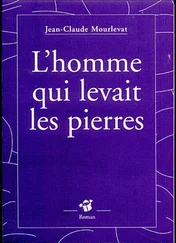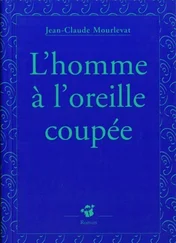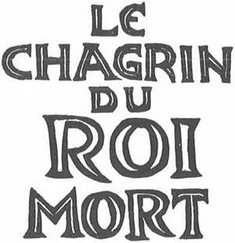Jean-Claude Mourlevat - Winter's End
Здесь есть возможность читать онлайн «Jean-Claude Mourlevat - Winter's End» весь текст электронной книги совершенно бесплатно (целиком полную версию без сокращений). В некоторых случаях можно слушать аудио, скачать через торрент в формате fb2 и присутствует краткое содержание. Год выпуска: 2010, ISBN: 2010, Издательство: Candlewick, Жанр: Старинная литература, на английском языке. Описание произведения, (предисловие) а так же отзывы посетителей доступны на портале библиотеки ЛибКат.
- Название:Winter's End
- Автор:
- Издательство:Candlewick
- Жанр:
- Год:2010
- ISBN:9780763651749
- Рейтинг книги:5 / 5. Голосов: 1
-
Избранное:Добавить в избранное
- Отзывы:
-
Ваша оценка:
- 100
- 1
- 2
- 3
- 4
- 5
Winter's End: краткое содержание, описание и аннотация
Предлагаем к чтению аннотацию, описание, краткое содержание или предисловие (зависит от того, что написал сам автор книги «Winter's End»). Если вы не нашли необходимую информацию о книге — напишите в комментариях, мы постараемся отыскать её.
Winter's End — читать онлайн бесплатно полную книгу (весь текст) целиком
Ниже представлен текст книги, разбитый по страницам. Система сохранения места последней прочитанной страницы, позволяет с удобством читать онлайн бесплатно книгу «Winter's End», без необходимости каждый раз заново искать на чём Вы остановились. Поставьте закладку, и сможете в любой момент перейти на страницу, на которой закончили чтение.
Интервал:
Закладка:
None of the girls dared mention Catharina, but everyone thought of her the whole time. Was she managing to sleep? Did they give her anything to eat and drink? Helen questioned a fifth-year girl who had spent a whole night and half the next day in the Sky last year for throwing her soup plate at the refectory wall and shouting that she was “Fed up! Fed up! Fed up!” She wouldn’t say much and seemed mainly anxious to know if Catharina would have had time to get a look at the picture on the beam.
“Is it that important?” asked Helen. “Did you see it yourself?”
“Only for a second or so, but it kept me from going around the bend. Was it you Milena went out with?”
“Yes.”
The girl turned her back. Helen felt that everyone held her responsible for what had happened, or at least thought she had been Milena’s accomplice. As Milena wasn’t there, they couldn’t tell her what they thought of her, so they took their fury and resentment out on Helen. Only Vera Plasil hadn’t turned against her.
“It isn’t your fault. How could anyone think it was? She’ll come back, I’m sure. I expect she had something really important to do. You wait and see; she’ll do it and she’ll be back.”
“Then why didn’t she tell me anything about it?”
Vera Plasil had no answer to that. She just looked at Helen with sympathy in her big blue eyes.
From Sunday onward Helen was counting not the days but the hours until Friday, when the Skunk came. Time just wouldn’t pass. She made herself imagine the worst to avoid feeling too bad when the moment came: the worst was if she didn’t get a reply from Milos this time and had to wait another week. The mere thought of it was disheartening.
And Milena still didn’t come back. Might never come back . . . until Catharina died in that black hole. The worst moment was suppertime. Since the detention cell was under the refectory cellars, the girls knew that Catharina was close to them, and they had difficulty forcing down what was on their plates.
At last Helen woke up in the morning and it was Friday. At ten to twelve, punctual if none too steady on his feet, the Skunk wheeled his cart of clean sheets across the yard. From the music room, Helen saw him disappear into the laundry to exchange them for the dirty bed linen.
“Happy of heart and pure of soul,
In unison we sing.
Midst fields and forests we will stroll . . .”
Old Ma Crackpot made them repeat that verse for the twelfth time, but Helen wasn’t listening to the others singing anymore. Oh, let there be a letter for me, she thought. Let there be a letter! I can’t wait another whole week.
On her way out of the refectory, a sixth-year girl came up to her. “Are you Helen Dormann?”
“Yes.”
“Here’s your mail, then! And don’t forget the little present next time.”
“I won’t — I promise!” said Helen, beside herself with delight as she put the two envelopes in her pocket. There were two of them! All week she’d been afraid of not getting a letter, and now she had two!
Feverishly, she searched the school yard for Vera Plasil. “Vera, could you wait at the door for me, please?”
The lavatories were dilapidated, but the only place where you could be left in peace on your own for a few moments, so long as there was someone to stand guard at the door. Once inside, Helen took the envelopes out of her coat pocket. Her name was on both, Helen Dormann, the girls’ boarding school, and her class, fourth year, but the handwriting on them was different. The first envelope was in Milos’s writing, which she easily recognized, large and neatly connected. The second, an inimitable, almost adult hand, was Milena’s! She opened Milos’s letter first. After all, this was the one she’d been waiting for all week. It was short:
Helen
I got your letter, and here’s mine. I hope it won’t be too Skunk-scented! Bartolomeo didn’t come back the other evening. I have something serious to tell you. Be at the corner of the east and north walls of your school at midnight on Friday. Promise?
Milos
P.S. I haven’t told you about myself either. I’m seventeen. I like Greco-Roman wrestling and eating (and I’m very glad I met you too).
Helen wondered if what she was holding was her first-ever love letter. The repetition of the last sentence of her own letter almost word for word suggested that Milos wanted a close friendship. Emotion almost made her dizzy. So many extraordinary things had been happening these last few days. She put the letter back in its envelope and opened Milena’s, which was longer.
Dear Helen,
I can imagine how angry with me you must be, and I really do understand. But you have to know that I didn’t let you down on purpose.
What happened is this: Bartolomeo came back to the library just after you left. We talked for over two hours, and at the end of that time, I decided to go on the run with him. We’re leaving tonight. I’m never coming back to the boarding school again.
We were hiding behind the fountain when you passed just now carrying a basket. I don’t know what was in it, but thank you for bringing it for me!
At the moment we’re at my consoler’s house, where I’m writing you this letter. She’ll send it on to you via the Skunk.
There’s so much I’d like to tell you, but I don’t have time. Milos knows all about it. He’ll explain. Ask him.
I hope we’ll meet again. You’ve been my best friend all these years. I’ll never forget you. I’m very sad to say good-bye.
Love and kisses,
Milena
P.S. I feel terrible about Catharina, but I had to do what I’m doing now.
“Helen, I’m getting cold out here. And it’s raining too.”
Waiting at the door, Vera was getting impatient. Helen wiped her eyes with her handkerchief, hid the two envelopes in the inside pocket of her coat, and emerged from the lavatories.
At evening study time, it was as if the ghosts of Milena Bach and Catharina Pancek occupied their empty places in the third row and the front row respectively. The absence of the two girls weighed on everyone’s mind. Miss Zesch, sweating more than ever, was almost falling asleep.
“What’s Greco-Roman wrestling, Vera?” Helen whispered.
“I think it’s men in swimsuits flinging themselves on each other and each tries to get the other guy down on his back.”
“God — really?”
“And they stink of sweat and grunt a lot.”
“Oh.”
“Why do you want to know?”
“Just wondering.”
Helen couldn’t stop thinking of Milos, telling herself all the time that she must be crazy to go falling in love with a boy she’d seen for less than five minutes, and in a dim light too. Another thing was that she couldn’t conjure up his face. The harder she tried to remember it, the more elusive it was. She thought she remembered that Milos wasn’t very tall; his cheeks were rather round, yes; he had curly hair, yes; and a nice smile — yes, yes, and yes again — but she couldn’t visualize him anymore. She decided that what she really wanted was to fall in love, and the first boy to come along would do. She just hoped she wasn’t going to be too badly disappointed.
And what did he want from her? The idea of meeting him by night fascinated her, but it scared her too. I have something serious to tell you. What did that mean? And she’d have to get out of the dormitory in the middle of the night. Luckily Miss Zesch, who was their supervisor again tonight, snored like a pig as soon as she fell asleep, and she didn’t surface again until early morning. She was by far the easiest of all the supervisors to deceive. Much more than Miss Merlute, a silent, cunning insomniac who went poking her long nose around among the rows of beds at any time of night. No, the real danger was from the other girls. Especially Vera, who was always a light sleeper and would want to know where she was going. Helen was tempted to tell Vera what was going on but decided against it. Sensible Vera was capable of waking the whole dormitory when the moment came, just to save Helen from putting herself at risk.
Читать дальшеИнтервал:
Закладка:
Похожие книги на «Winter's End»
Представляем Вашему вниманию похожие книги на «Winter's End» списком для выбора. Мы отобрали схожую по названию и смыслу литературу в надежде предоставить читателям больше вариантов отыскать новые, интересные, ещё непрочитанные произведения.
Обсуждение, отзывы о книге «Winter's End» и просто собственные мнения читателей. Оставьте ваши комментарии, напишите, что Вы думаете о произведении, его смысле или главных героях. Укажите что конкретно понравилось, а что нет, и почему Вы так считаете.












